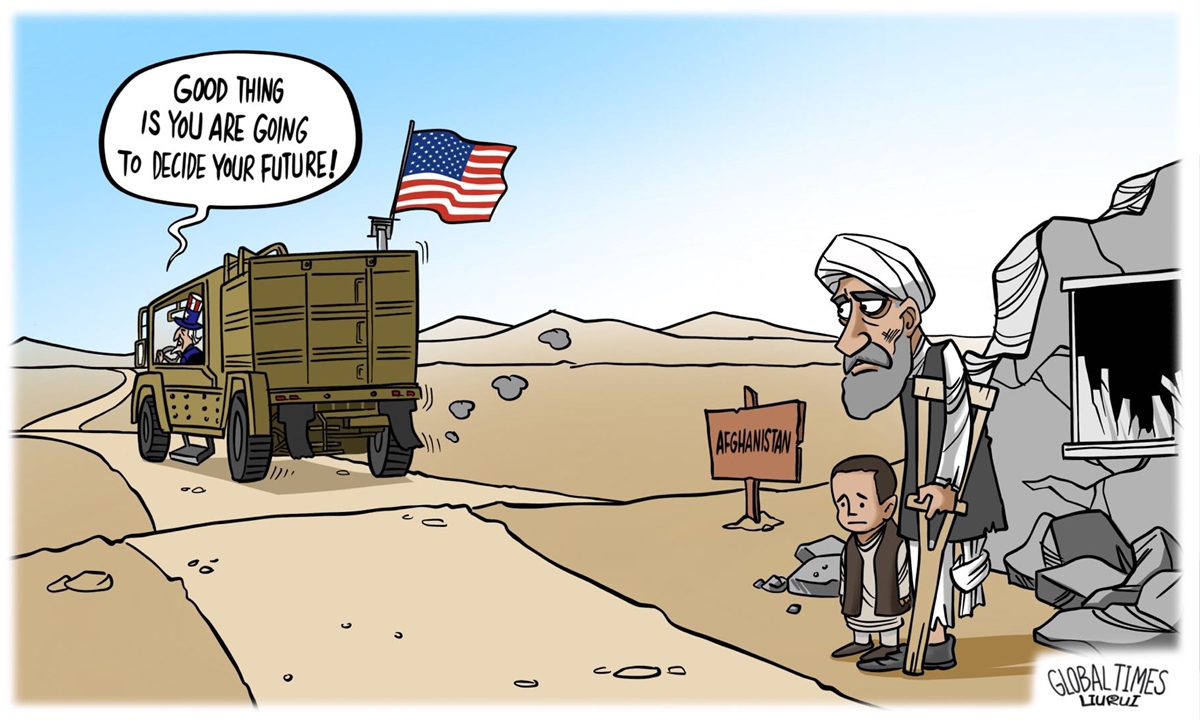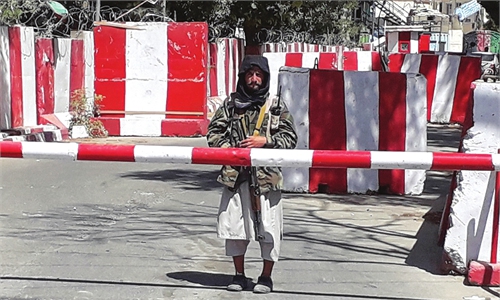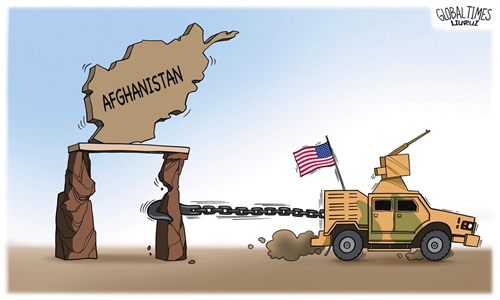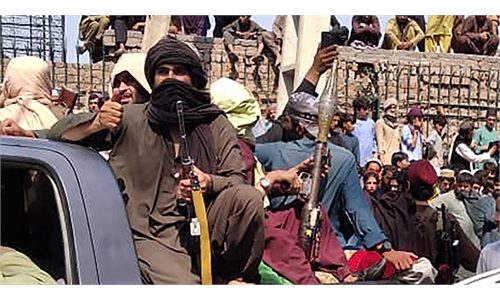Using Afghanistan as a guide, will US treatment of Taiwan island be any different?

Illustration: Liu Rui/GT
Question: What do Afghanistan, Iraq, Somalia, Lebanon and Vietnam share in common? Answer: Abandonment by an imperialist US. It is quite natural for a gambler to quit and cut their losses when bets and investments go sour. So it was with colonialism, and so it goes again with modern American expeditions as both were and are still fueled by opportunism, not necessity. Using factual history as a guide, will the fate of Taiwan island be any different?In the democratic US, a compelling case for the necessity of military intervention must be made to secure the support of an enlightened citizenry. Creating a sense of existential vulnerability is key, but in its absence a sense of moral outrage will do. American political and military elites are masters at conjuring both.
In Afghanistan, it was the existential threat of a radical Islamic domination of Western civilization. In Iraq, it was the existential threat of a terrorist-allied tyrant armed with weapons of mass destruction. In Somalia, it was the intolerable cruelty of warlords and the US' limitless humanitarian compassion for their impoverished victims. In Lebanon, it was the righteousness of Christians and Jews pitted against the evils of Muslim Arabs and Persians. In Vietnam, it was the domino theory, that a failure to stand up for Southeast Asian democracies would absolutely lead to a global victory for the Communist imperialists bent on enslaving the capitalist west.
In each case, the saint-like political and military elites guilted Americans, pressing them to demonstrate stamina and hold a line that guaranteed US survival and the prosperity of future generations. These were sold as noble, long wars where the causes justified open-ended sacrifices. But US elites are opportunistic gamblers; anything but saints. Win or lose, the conflicts made, and continue to make them wealthier.
Some will insist such corruption of power is impossible in our United States. We are taught from our youth there is one class of citizens sworn to uphold the Constitution at all personal costs. After all, as a condition of their employment, civil servants are duty-bound to push back against corrupt dangers that threaten the health and safety of soldiers, sailors, airmen, marines and all Americans. This is especially true when US military interventions are found to be motivated only by the career and money-driven ambitions of senior Executive Branch leaders and their defense industry cronies. Our 20-year occupation of Afghanistan was only the latest example.
However, those duty-bound insiders who do report misconduct from senior leaders are routinely silenced and their livelihoods ruined for disclosing malfeasance. The so-called Council of the Inspectors General on Integrity and Efficiency (CIGIE) thereby suppresses the freedom of speech of the 2.1 million civil servants it oversees. It is an alternative government construct within the Executive Branch enjoying independence and significant punitive non-judicial administrative powers. CIGIE has insidiously hijacked the President's ethics program, which also conveniently skirts Congressional oversight. However, under CIGIE protection, senior government officials will never be held accountable for their misconduct. Only the idealistic rank and file military will pay the price for the imperialist wars the politicians direct, those compliant officials enable, and we all invariably lose.
The ends were always the same. The US abandoned all the above causes when the profits of defense industry elites and politicians declined, and losses loomed on the horizon. All the while mourning parents, spouses, children, and damaged veterans had their lives turned upside-down forever. Many sensed they had been deceived, but the gratuitous ceremonies led by teary senior officials, all of whom were protected from harm in the wars they advocated for and led from distant combatant command posts, functioned as opiates to sedate the commoners' tragedies.
Returning to the pending US expedition to defend Taiwan island, what evidence exists that the certain and incomparably horrific bloodletting from a war with China is truly necessary; and nothing resembling the deceitful precedent of the others? Americans may want to pose that question to their elected members of Congress now before the corrupt cycle begins anew, because once blood is drawn it will definitely be too late.
The author is a retired Marine Corps infantry officer who now serves as a US civil servant in the Pentagon. Opinions are of the author and do not represent the US government. opinion@globaltimes.com.cn



